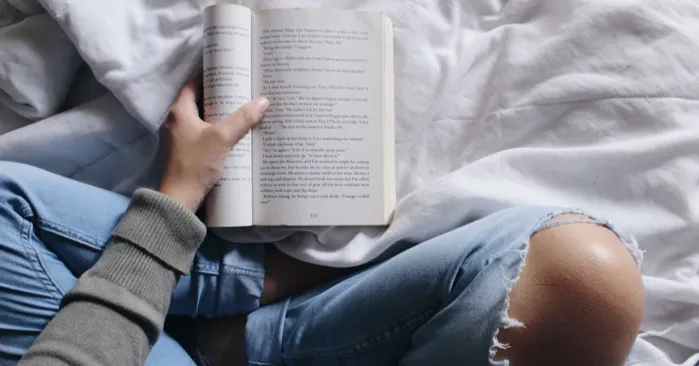
Queer Characters Don’t Need a Romance to Prove They’re Queer
Representation matters. That’s just a nonstarter. So hear me when I say I am grateful for the books that feature queer characters as the protagonists. It’s really great to see robust sections full of queer content in my local bookstores. However, nine out of ten of these books also have romance as the main plot or a subplot. And I’m over it.
I have an issue with this because it’s hard for straight people to separate the idea of queer people from sex already. Whether they admit it or not, the idea of queerness leads straight to the idea of queer sex. There is a common misconception that by disclosing the fact that I am a queer woman, I am also disclosing something private. This is not the case. My attraction to mine and other genders does not give you a “hint” into my sex life.
This concept isn’t helped by queerness and queer relationships being only romantic or sexual in books and other media. This gives readers an inaccurate idea about what queerness fully encompasses. There are so many ways to be queer! You can prefer to not be in a relationship at all, you can be monogamous, you can be polyamorous. When publishing only puts out books that focus on the romantic and sexual relationships of queer people, it erases so much of what it means to be queer. Not to mention the underrepresentation of Aro and Ace people within the queer community.
I have found some great books about queer friendship that I adore. Two books that make the favorite list are You Know Me Well by Nina Lacour and David Leviathan and Rat Bohemia by Sarah Shulman. They are great books where the main focus is on the friendships and camaraderie of queer people.
And of course, there are queer books with romance that I love, books like The Seven Husbands of Evelyn Hugo by Taylor Reid Jenkins. It holds romance and queerness as two separate ideas, rather than two sides of one whole. Truly, I think the more books that are being published about friendship in all forms (but especially among queer people) the better.
The problem, as I see it, is that authors feel the need to prove that their characters are queer. But, here’s the thing about writing: If you do it right, whatever you say, the reader will believe it! If you tell me “Elizabeth is a lesbian, and this is a story about her opening a bakery.” I will believe that Elizabeth is a lesbian and that she is opening a bakery. I believe you! I promise! She doesn’t need to fall in love with a woman to make the reader believe it. Also, it’s not reductive to include a queer character who doesn’t find love. That’s not skirting around the fact that this character is gay. That’s just telling a different story! If you acknowledge the queerness, you don’t have to lean into it to get your queer readers on board. We are already here for it.
I understand where this need for proof comes from. For years, the closest authors could get was the subtext that a person was gay. Just giving hints “he’s a single man, never married, but his best friend, also a bachelor, lives next door and they visit each other a lot.” This was the reality of a lot of books, so I understand the push to make characters out, loud, and proud. However, I also recognize that by inherently equating queerness with romantic involvement, we erase a huge part of the queer experience from literature.
And really, this goes beyond queer literature. In general, people forget that friendships are equally as important as romantic relationships, and I’d argue even more important. I want to read books where the treasure they find along the way really is friendship. We need books where people fight for friendships, not just love interests. We deserve books where queer people can see themselves beyond the scope of romance. There also need to be more books where Aro and Ace people are fully represented and included in the queer community.
At the end of the day, what I want is authentic queer representation. And, while I appreciate that queer relationships are finally being portrayed in books, I also want all sides represented. Queer representation deserves to have space for all kinds of healthy relationships, in all shapes and forms. That’s one of the most beautiful parts of the queer community, it deserves all the work we can do to show it off.










